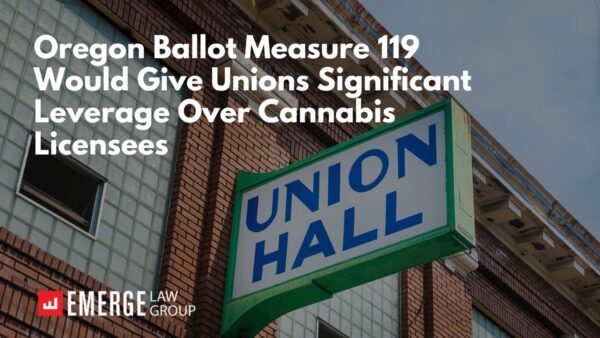In the legal field, the beginning of a new year is often synonymous with new laws and 2020 is no exception. Oregon’s new corporate activity tax, also known as “CAT”, goes into effect beginning January 1, 2020. The CAT is a gross-receipts tax that affects virtually every industry in the state, including the cannabis and hemp industries. Here’s a quick peek at what you need to know.
Who does CAT affect?
The CAT affects nearly every industry and every business type, including individuals, corporations, LLCs, partnerships, and trusts. The CAT even burdens businesses that do not have a physical presence in Oregon but: (1) have property in Oregon with an original cost of at least $50,000; (2) have payroll in Oregon of at least $50,000; (3) have commercial activity sourced to Oregon of at least $750,000; or (4) at least 25% of the property, payroll, or commercial activity occurs in Oregon.
The CAT is a pyramid tax, meaning the tax is assessed at every level of business activity, including on suppliers, manufacturers, wholesalers, and retailers. This may have the unwanted effect of increasing prices in the marketplace and ultimately, passing on those increases to consumers.
How much will CAT cost?
Businesses with Oregon gross receipts of $750,000 or more must register for the tax with the Oregon Department of Revenue (“DOR”). Businesses with Oregon gross receipts in excess of $1 million must file a return and pay a tax of $250 plus 0.57% of the gross taxable commercial activity (“TCA”).
TCA means Oregon gross receipts less 35% of the greater of: (1) cost of goods sold; or (2) labor costs. “Labor costs” means the total compensation of all employees (not including amounts paid to any individual in excess of $500,000); however, it is currently unclear whether the definition means only wages, or also includes benefits and payroll-related taxes. There are 43 types of receipts that are exempt from the CAT so understanding which receipts fall into which category is crucial in determining the tax owed.
It’s important to note that CAT is a gross-receipts tax, which means some businesses may pay tax on dollars they don’t actually realize in profit. This could have a serious effect on businesses currently operating at a loss.
When is CAT due?
Although the DOR has not yet built the system for processing CAT, the first estimated quarterly CAT payment is due in April 2020, and then each quarter thereafter. The first annual return will be due April 15, 2021.
If your business is affected by the CAT, we strongly encourage you to reach out to your CPA or tax counsel. Emerge Law Group’s tax specialists can also help answer any questions you may have.





